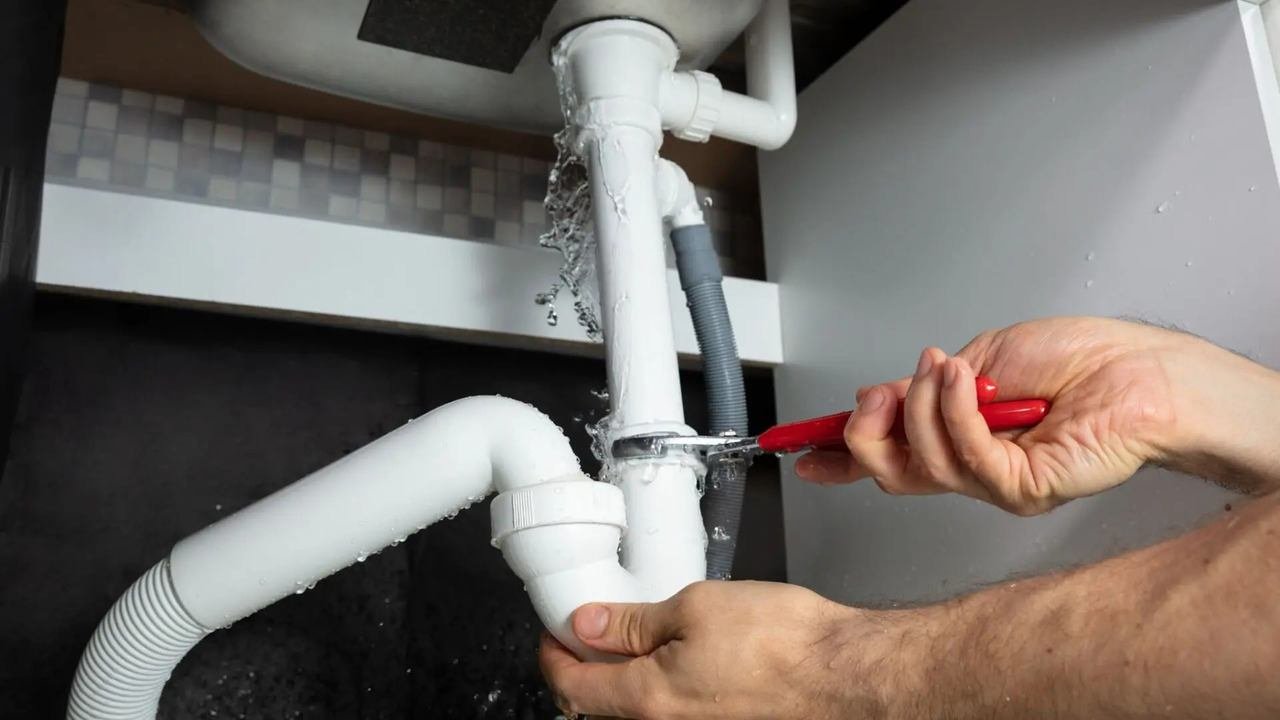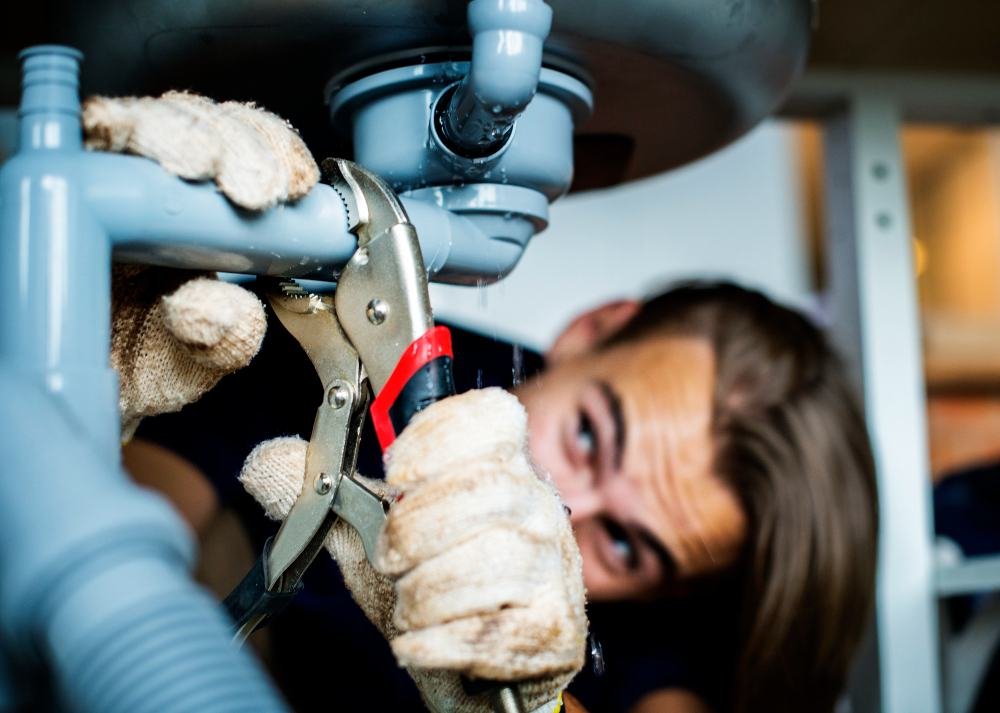When it comes to keeping your drains clear and hassle-free, regular maintenance is key. At Ace Plumbing and Home Services, we recommend cleaning your drains about once a month. This simple habit can prevent stubborn clogs that lead to bigger plumbing headaches down the road. By clearing out debris and buildup regularly, you ensure smooth water flow and avoid costly repairs. It’s an easy way to maintain your home’s plumbing system and keep everything running smoothly.
Why Drain Maintenance Matters
Drain maintenance is crucial for preventing clogs and maintaining a functional plumbing system. Regular cleaning using methods like baking soda and vinegar, boiling water, or drain snakes helps clear debris and buildup. Professional drain services offer specialized cleaning and inspection to address stubborn clogs and ensure optimal drainage. By combining DIY maintenance with professional services, you can prolong the lifespan of your pipes, avoid costly repairs, and maintain efficient water flow throughout your home. This proactive approach minimizes disruptions and enhances overall plumbing performance.
Drains are an integral part of your home’s plumbing infrastructure. They carry wastewater away from sinks, showers, tubs, toilets, and appliances like washing machines and dishwashers. Over time, these drains can accumulate various substances that lead to blockages:
Kitchen Drains:
Grease, food particles, and soap scum can build up, especially if not properly disposed of.
Bathroom Drains:
Hair, soap residue, and mineral deposits from hard water are common culprits.
Utility Room Drains:
Lint, dirt, and detergent residues can accumulate in laundry drains.
When drains become clogged, water flow is impeded, leading to backups and potential damage. For instance, a clogged kitchen sink can prevent you from washing dishes, while a backed-up shower drain can flood your bathroom. Worse yet, repeated clogs can strain your plumbing system, causing pipes to weaken or even burst.
How Often Should You Clean Your Drains?

You should clean your drains monthly to prevent clogs and ensure smooth water flow. This regular maintenance helps remove debris and buildup that can lead to blockages. Additionally, consider scheduling annual inspections with general contracting services. They can assess your plumbing system’s overall condition and recommend necessary repairs or upgrades to prevent future issues. By combining regular DIY maintenance with professional inspections, you can maintain efficient drains and avoid costly plumbing emergencies in your home.
The frequency of drain cleaning largely depends on usage and the type of substances that go down your drains. Here’s a general guideline:
Kitchen Sink:
Ideally, clean kitchen drains once a month. Cooking oils, fats, and food particles can accumulate over time, even if you use a garbage disposal.
Bathroom Drains:
Shower, bathtub, and bathroom sink drains should also be cleaned monthly. Hair, soap residue, and mineral deposits are common causes of bathroom drain clogs.
Toilets:
While you may not clean toilet drains as frequently, it’s essential to monitor for any signs of slow drainage or backups.
Utility Room Drains:
Clean washing machine and utility sink drains every few months, depending on usage. Lint, dirt, and detergent residues can build up quickly.
Methods for Cleaning Drains
Methods for cleaning drains include using baking soda and vinegar to break down organic matter and pouring boiling water to clear blockages. For hair clogs in bathroom drains, try using a drain snake or a wire hanger to physically remove the hair. Edgewater homeowners can also use enzymatic drain cleaners that break down organic materials like hair without harming pipes. Regular maintenance and addressing clogs promptly can help prevent larger plumbing issues and keep drains flowing smoothly in your home.
There are several methods you can use to keep your drains clear and prevent clogs. Here are some effective techniques:
1. Boiling Water
One of the simplest and least expensive methods is pouring boiling water down the drain. This helps dissolve grease and flush away minor blockages.
How to Use:
- Boil water in a kettle or on the stove. Carefully pour it directly down the drain in two to three stages, allowing it to work for a few seconds between each pour.
When to Use:
Use boiling water regularly as a preventive measure, especially for kitchen drains prone to grease buildup.
2. Baking Soda and Vinegar
This natural combination is effective for clearing minor clogs and deodorizing drains.
How to Use:
- Pour 1/2 cup of baking soda down the drain.
- Follow with 1/2 cup of vinegar.
- Cover the drain and let the mixture sit for 30 minutes to an hour.
- Flush with hot water to clear the residue.
When to Use:
Use this method monthly for maintenance or as soon as you notice slow drainage in sinks or tubs.
3. Plunger
A plunger is a basic tool for clearing clogs in sinks, toilets, and tubs. It works by creating pressure to dislodge blockages.
How to Use:
- Ensure there’s enough water in the sink or tub to cover the plunger’s cup.
- Place the plunger over the drain and plunge vigorously up and down for about 20-30 seconds.
- Repeat as necessary until the drain clears.
When to Use:
Use a plunger immediately when you notice a clog in a sink, toilet, or tub. It’s effective for minor to moderate blockages.
4. Wire Hanger or Drain Snake
For stubborn clogs deeper in the drain pipe, a wire hanger or drain snake (auger) can be effective.
How to Use:
- Straighten a wire coat hanger and create a small hook at one end.
- Insert the hooked end into the drain and maneuver it to catch and pull out debris.
- Alternatively, use a drain snake by feeding it into the drain until you feel resistance, then rotate and push to dislodge the clog.
When to Use:
Use these tools when other methods fail to clear the clog, or if you suspect a more significant obstruction deeper in the pipes.
5. Chemical Drain Cleaners
Chemical drain cleaners can be effective but should be used cautiously as they can be harsh on pipes and harmful if not handled properly.
How to Use:
- Follow the manufacturer’s instructions carefully.
- Pour the recommended amount of cleaner into the drain.
- Allow it to sit for the specified time before flushing with water.
When to Use:
Reserve chemical cleaners for persistent clogs that other methods have not resolved. Avoid regular use to prevent damage to pipes.
Tips to Prevent Drain Clogs

To prevent drain clogs, use drain guards to catch debris, dispose of grease in the trash, and flush drains with hot water regularly. Clean sink stoppers and schedule professional plumbing inspections annually to detect and address potential issues early. Professional plumbing services can provide deeper cleaning and maintenance, ensuring optimal drain performance and preventing costly repairs down the line. These proactive steps help maintain clear drains and a smoothly running plumbing system in your home.
Prevention is often the best approach to maintaining clear drains and avoiding the hassle of clogs. Here are some tips to keep your drains flowing freely:
Use Drain Guards:
Install mesh or perforated drain guards in sinks, showers, and tubs to catch hair, food particles, and other debris before they enter the drain.
Dispose of Grease Properly:
Avoid pouring grease, fats, and cooking oils down the drain. Instead, collect them in a heat-resistant container and dispose of them in the trash once solidified.
Flush Drains with Hot Water:
Regularly flush kitchen and bathroom drains with hot water to melt away greasy residues and keep pipes clear.
Clean Out Sink Stoppers and Strainers:
Remove and clean sink stoppers and strainers periodically to prevent buildup that can lead to clogs.
Avoid Chemical Cleaners:
Minimize the use of chemical drain cleaners as they can damage pipes and harm the environment.
Schedule Professional Inspections:
Consider scheduling periodic inspections with a plumbing professional to detect and address potential issues before they escalate.
Monitor Water Flow:
Pay attention to the speed at which water drains from sinks, showers, and tubs. Slow drainage may indicate an impending clog.
FAQs
How often should you clean your drains?
To maintain optimal drainage and prevent clogs, it’s generally recommended to clean your drains once a month. This frequency helps remove buildup of grease, hair, soap scum, and other debris that can lead to blockages. Regular cleaning ensures smooth water flow and reduces the risk of plumbing issues in your home.
How can I keep my drains from clogging?
To prevent drains from clogging, use drain guards to catch hair and debris, avoid pouring grease and oils down drains, and regularly flush drains with hot water to clear buildup. Additionally, clean sink stoppers and strainers often and consider periodic professional inspections to detect and address potential issues early. These simple steps can help maintain clear drains and prevent costly plumbing problems.
How often should you clean your pipes?
The frequency of cleaning pipes depends on various factors such as usage, water quality, and the presence of specific contaminants. In general, pipes typically do not require regular cleaning unless there are signs of significant buildup or clogging. However, for specific systems like septic tanks or industrial pipelines, regular maintenance schedules may be recommended by professionals to ensure optimal performance and longevity.
How often should you unblock your drains?
The frequency of unblocking drains depends on usage and how quickly clogs develop. For most household drains, you should unblock them as soon as you notice slow drainage or standing water. Using preventive measures like regular cleaning and drain guards can help reduce the frequency of needing to unblock drains.
What happens if you don’t clean your drains?
If you don’t clean your drains regularly, several issues can arise. Firstly, buildup of debris like hair, grease, and food particles can lead to clogs, causing water to drain slowly or back up. Over time, this can damage pipes, leading to leaks or even burst pipes. Additionally, stagnant water in blocked drains can create unpleasant odors and provide a breeding ground for bacteria, potentially posing health risks. Regular drain cleaning helps maintain proper drainage, prevents plumbing emergencies, and ensures a healthier home environment.
Conclusion
Regular drain cleaning is essential for maintaining a healthy plumbing system in your home. By adopting preventive measures and using effective cleaning methods, you can minimize the risk of clogs and ensure smooth water flow throughout your house. Remember, a little maintenance goes a long way in preventing costly plumbing repairs and disruptions to your daily routine. So, take the time to clean your drains regularly—it’s a small investment that pays off in the long run.
